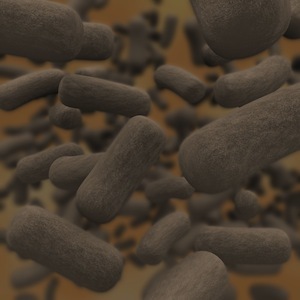What are Probiotics and Prebiotics? |  |
| What are Probiotics and Prebiotics? Posted: 27 Mar 2014 08:00 AM PDT  You may have seen probiotic yogurt advertised as having “live active cultures.” This indicates that the yogurt contains living, beneficial organisms intended to help your body with digestion. Many people wonder if there’s any truth in that or if it’s just a marketing ploy. Well, considering the nature of advertisers, you might be surprised to know that although “probiotics” has become a hot buzzword in health food advertising, it’s not just a bunch of hype. In fact, probiotics do promote healthy digestion. What’s not often discussed is that, like all living organisms, probiotics need nutrition. That role is taken on by prebiotics. Let’s explore the world of probiotics and prebiotics and their relationship.
Prebiotics and Probiotics: What’s the Difference?Probiotics is the term most people are familiar with, especially individuals who indulge in fermented foods like kefir and kombucha. When consumed, probiotics populate and colonize the digestive tract with beneficial bacterial colonies. Many people consume probiotics because illness, environmental pollutants, processed food, and even stress can cause a bacterial imbalance in the gut. When there are more bad bacteria than good bacteria, health problems may result. Unlike probiotics, prebiotics aren’t living organisms. Prebiotics are the food and nutrients that feed probiotics to stimulate probiotic activity in the gastrointestinal tract. Probiotics are fighting a constant battle and need prebiotics from fiber-rich foods (among other sources) to stay strong. They have the added benefit in that not only do prebiotics encourage probiotic colonies to thrive, they also promote general well being. [1] [2] What are the Other Benefits of Prebiotics?Other benefits associated with prebiotics include metabolic support, mineral absorption, vitamin utlization, laxation, and immune system benefits. [3] Prebiotics may also encourage normal blood sugar. [4] It is worth mentioning that prebiotics affect everyone differently and the current intestinal health of the individual taking prebiotics needs to be considered. Some research has shown that people suffering from gastrointestinal illnesses like Crohn’s disease or irritable bowel syndrome may upset their symptoms by taking prebiotics. [5] It’s necessary to achieve internal harmony before it can be optimized. What are the Benefits of Probiotics?Probiotic bacteria supports digestion and offers many benefits to long-term health, even at the earliest stages; intestinal health has a substantial impact on early childhood development. [6] Probiotics have been recommended for inflammatory bowel diseases and intestinal distress. Oral and periodontal health also respond positively to probiotics. [7] Since antibiotics do not discriminate in which bacteria they destroy, probiotics are commonly taken during antibiotic therapy to maintain internal balance. Studies suggest that some probiotics can even suppress the mechanisms that lead to autoimmune disease and sensitivity to pollens, dust, and other environmental debris. [8] Breathing ability has also shown to be positively affected by probiotic bacteria. [9] Researchers have even determined that probiotics reduce intestinal transit time, which can help to promote regular bowel movements. [10] In animal studies, probiotics have even exhibited some benefit with regard to serotonin levels, thus providing additional support against anxiety and cognitive decline. [11] Considering that 90% of serotonin production and regulation occurs in the gut, these findings aren’t terribly surprising. [12] Sources of Prebiotics and ProbioticsPrebiotics are mainly derived from fiber, like inulin. Often, yogurt marketed as probiotic yogurt will contain inulin (prebiotic) and live active cultures (probiotic). Other good sources of prebiotics include acacia gum, dandelion greens, garlic, asparagus, beans, oats, and chicory root. Two of the most well-known strains of probiotics are Lactobacillus and Bifidobacteria. These strains can be found in yogurt, kefir, other fermented foods like sauerkraut, miso and tempeh, and pickled vegetables. If you don’t eat these foods, probiotic supplements are a really easy way to enjoy the benefits of probiotics. However, be aware that quality can vary substantially and it’s important to choose a product from a known company that has a production process you can verify. Do you take probiotics? Got a favorite probiotic food? What benefits have you noticed? Leave us a comment below and let us know how probiotics affect your own intestinal health. -Dr. Edward F. Group III, DC, ND, DACBN, DCBCN, DABFM References:
The post What are Probiotics and Prebiotics? appeared first on Natural Health & Organic Living Blog. |
| You are subscribed to email updates from Natural Health & Organic Living Blog To stop receiving these emails, you may unsubscribe now. | Email delivery powered by Google |
| Google Inc., 20 West Kinzie, Chicago IL USA 60610 | |
No comments:
Post a Comment